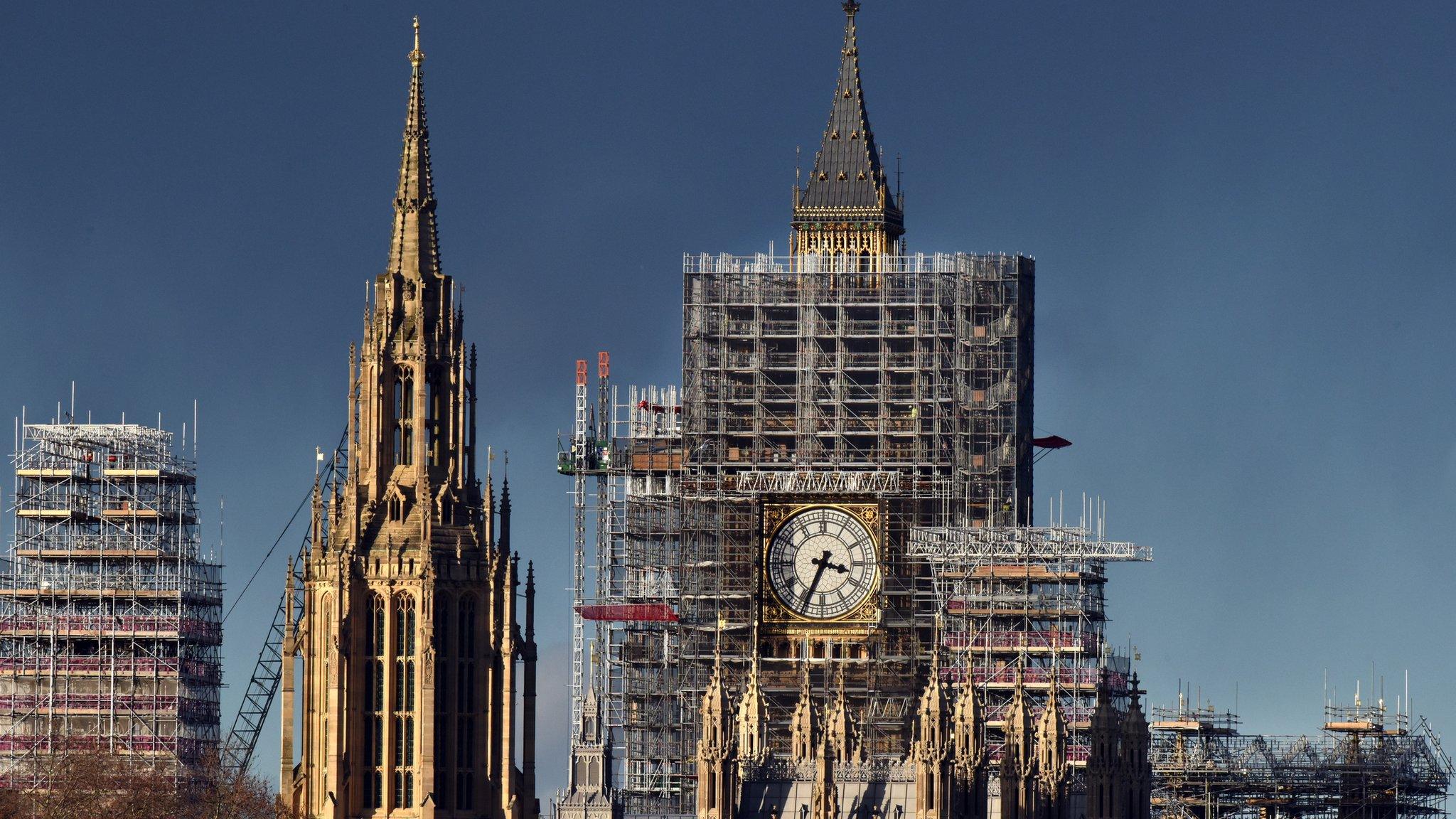Supreme Court ruling: Your questions answered
- Published
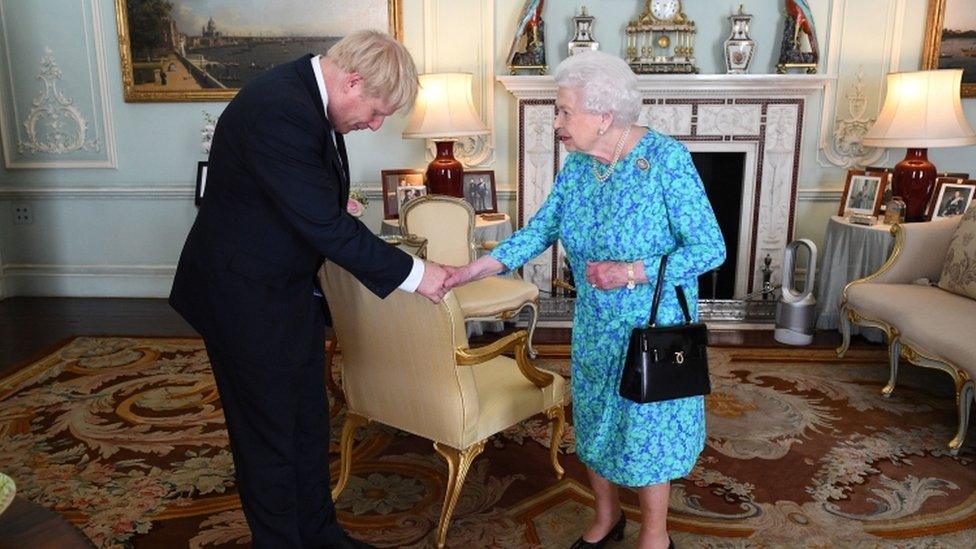
The UK Supreme Court has ruled unanimously that Prime Minister Boris Johnson's suspension of Parliament broke the law.
We've answered a sample of the questions we received from readers on this subject.
Did the prime minister mislead the Queen?
The Supreme Court does not go as far as Scotland's Court of Session, which said that the PM had "an improper purpose" when he advised the Queen to prorogue Parliament.
However, the Supreme Court judgement, external said: "It is impossible for us to conclude on the evidence... that there was any reason - let alone a good reason - to advise Her Majesty to prorogue Parliament for five weeks."
Could Boris Johnson face criminal prosecutions? - Gordon Pearson
The Supreme Court case was not about criminal law, but constitutional law, says BBC home affairs correspondent Dominic Casciani. As such, the PM broke the rules that govern how the UK functions, by breaching Parliament's right to hold the government to account.
If someone complained to the police about misconduct of public office, the police would have to assess it accordingly. However, the bar to prove a criminal offence is very high and there is no suggestion the prime minister broke the law in this way.
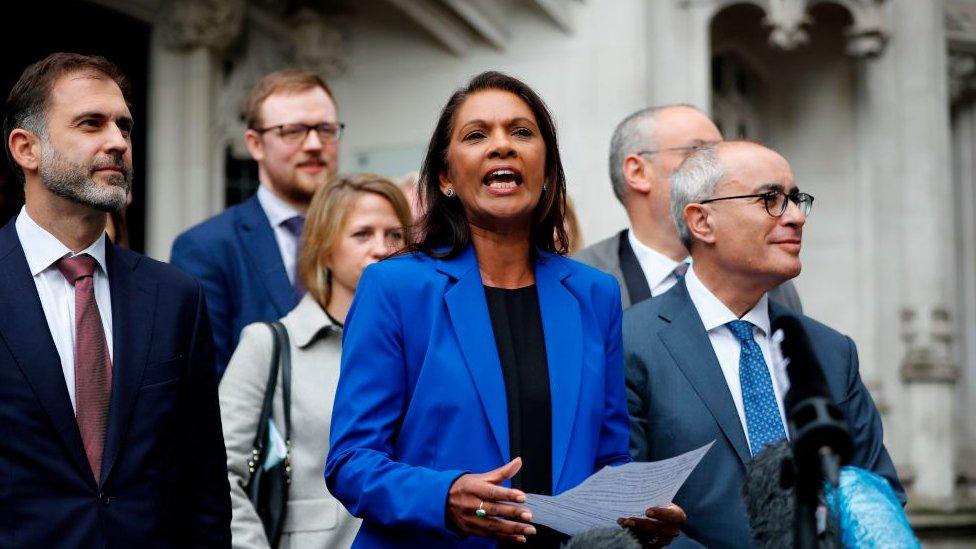
Gina Miller had appealed against the English High Court's decision that the prorogation was "purely political" and not a matter for the courts
Is it possible to impeach the PM?
There is a procedure giving MPs the right to impeach a member of government, as Labour MP Liam Byrne has suggested, external. However, Parliament says that "for all practical purposes the procedure of impeachment is obsolete".
The last time an impeachment case was prosecuted was in 1806, but the attempt was unsuccessful. In 2004, a cross-party group of MPs, including Boris Johnson, tabled a motion to impeach Tony Blair for his role in the Iraq war. This motion was never debated.
Could there still be a Queen's Speech?
Despite the ruling, Mr Johnson says he still wants to hold a Queen's Speech. The speech marks the start of a new session of Parliament, where the Queen reads out a list of laws the government hopes to pass over the next year or so.
The Supreme Court ruling does not prevent Mr Johnson from suspending Parliament again, as long as it does not stop it from carrying out its duties "without reasonable justification".
So if Mr Johnson wants a Queen's Speech on 14 October (as originally intended), he could prorogue Parliament a day or two beforehand so that preparations can be made.
Will Boris Johnson now face a no confidence vote? - Christine Philips
That will depend on when and if Labour leader Jeremy Corbyn calls one. If the leader of the opposition introduces the motion, convention means the government will provide time for a debate to take place. So far, no such move has been announced.
If one more MP votes in favour of, than against, a motion, "that this House has no confidence in Her Majesty's Government," then either an alternative government must be formed within 14 days or a general election is triggered.
A complicating factor is that, if a vote of no confidence was successful now and a general election was triggered, it could mean Brexit taking place during the election campaign. It's still widely expected that there will be an early election at some point, but the timing is very unclear.
Can the government appeal to the European court?
No, even if it wanted to, it couldn't.
The European Court of Justice only rules on issues relating to the interpretation of EU law and disputes between member states. Because this is a domestic constitutional issue, the European court has no jurisdiction.
As such, the government has no further opportunities to appeal against the decision, as the Supreme Court is the highest in the UK.
How did each of the judges vote on the issue?
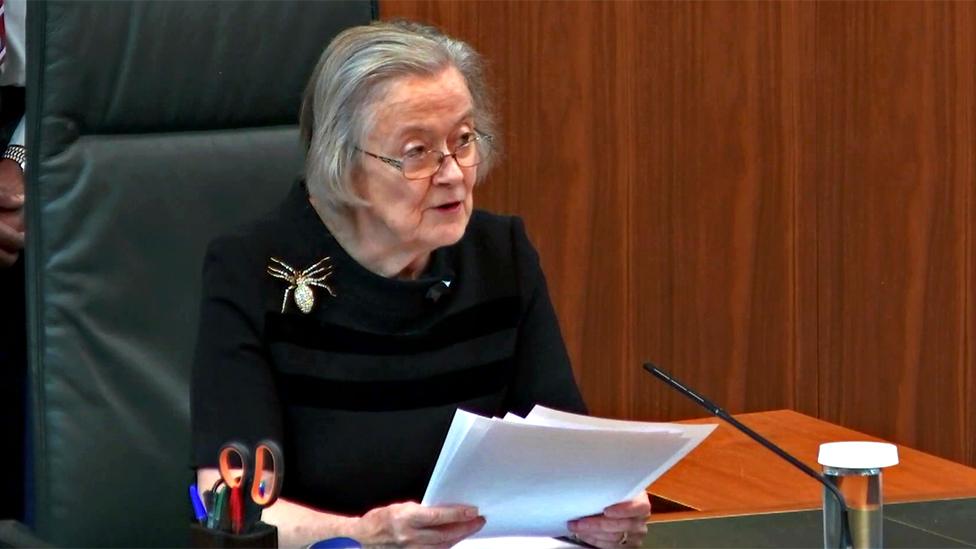
Supreme Court president Lady Hale said the decision was unanimous, meaning all 11 justices agreed that the prorogation was unlawful.
The justices are appointed by the Queen on the recommendation of a panel of legal experts from each of the UK's nations. Applicants must have been a High Court judge for at least two years, or a practising lawyer for 15.
Does this open the way for all decisions by government to be challenged in the courts?
It's already the case that decisions by government can be challenged in the courts.
One of the functions of the judiciary is to oversee the appropriate use of power by public bodies, including the government, through a process called judicial review.
The courts can't challenge every government decision, only those that fall into the grounds for judicial review - that is, if a body is failing in its legal duty to act in a certain way, or it is acting in a way that goes beyond its legal powers. In this case it ruled that there was "no doubt that the courts have jurisdiction".
What difference would five weeks make to MPs solving the Brexit deadlock?
The Supreme Court doesn't say it would. What it does say is that one of Parliament's main responsibilities is to scrutinise the government, particularly at important moments, such as in the run up to Brexit.
By proroguing Parliament for five weeks "without reasonable justification", the government had prevented Parliament from carrying out this job.
Isn't the House of Commons in recess for three weeks anyway, for party political conferences? - Jami Burrows, Ipswich
Recess does not happen automatically. MPs get a vote on it - unlike whether Parliament is prorogued.
Because of prorogation, MPs did not vote on whether to break for the political conferences. As they are not on recess, they can return to Parliament - and Commons Speaker John Bercow says this will happen on Wednesday.
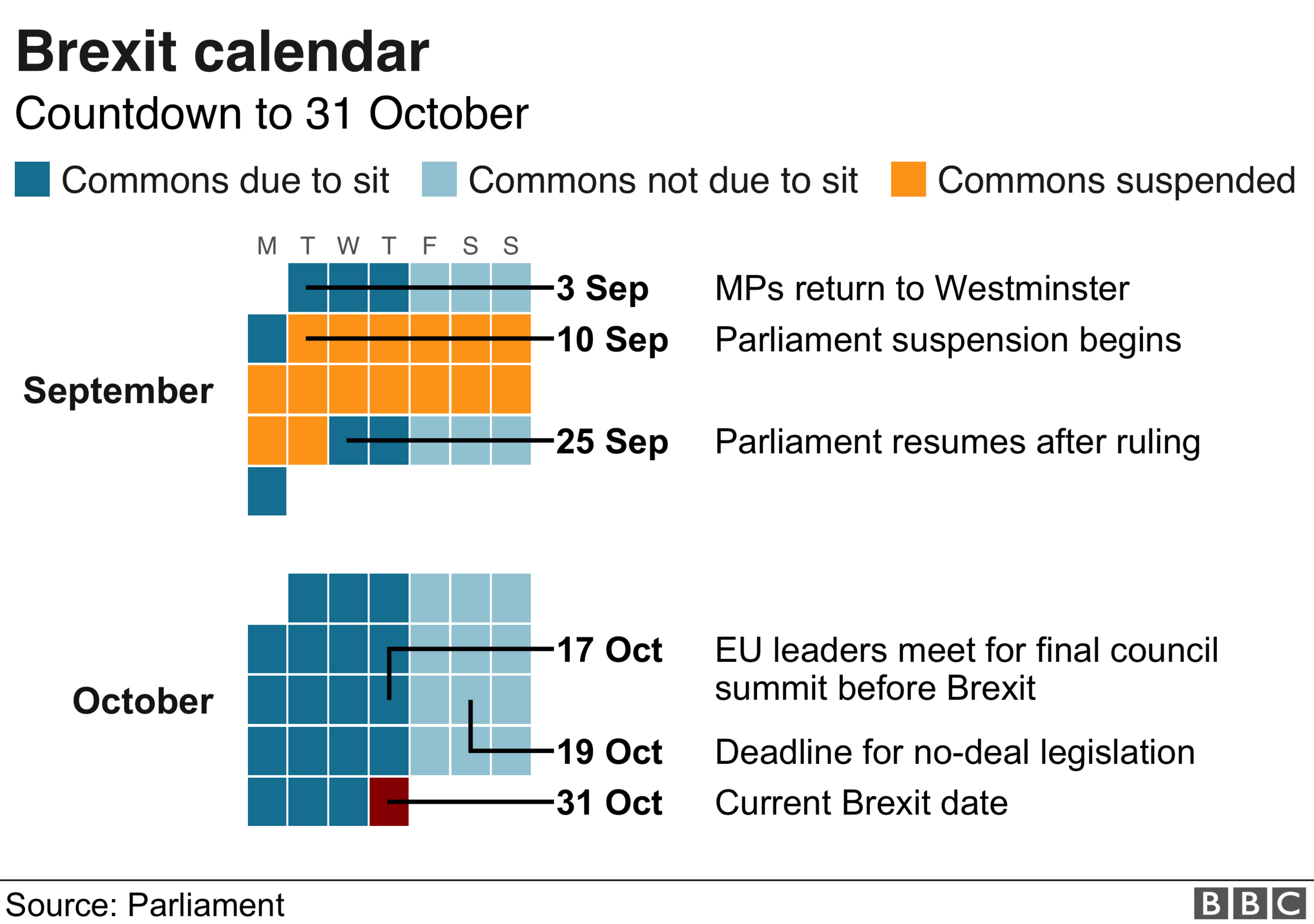
Does this decision mean that bills thrown out during the shutdown can be reinstated?
Yes it does. Parliament effectively goes back in time to 9 September, the day before prorogation took place.
All the bills which were thrown out will be reinstated. This includes the trade bill and four other Brexit-related bills relating to immigration, agriculture, financial services and fisheries.
It also brings back five other bills concerning, for example, domestic abuse, animal cruelty and divorce law reform. The bills will now pick up from the stage they had reached.
Could the Queen have said "no" to the prime minister on prorogation? Josue Martinez, USA
There is very little discretion for the Queen when it comes to decisions such as prorogation, says the BBC's royal correspondent Jonny Dymond, as she acts on the advice of the prime minister.
"That advice, if you will, is with a capital A - she is effectively being told to prorogue."
- Published24 September 2019
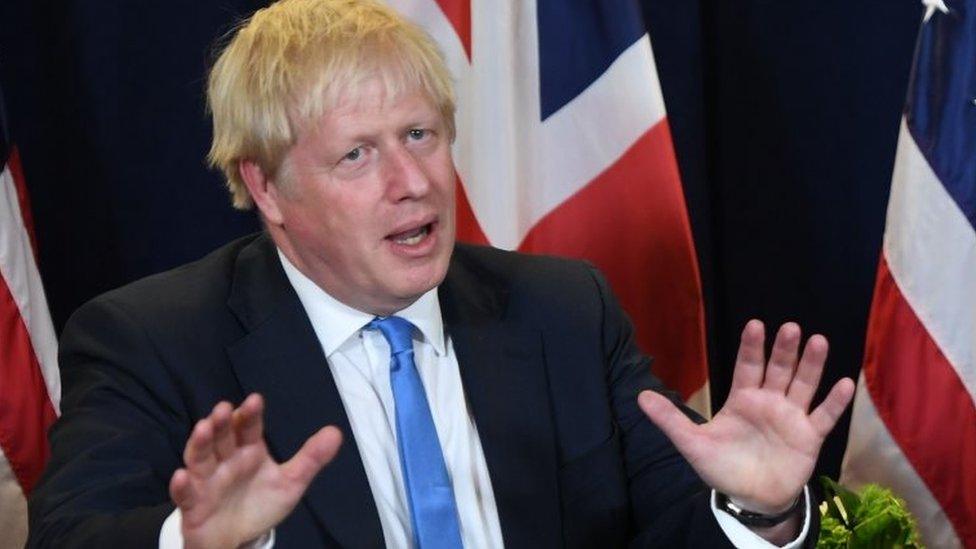
- Published24 September 2019
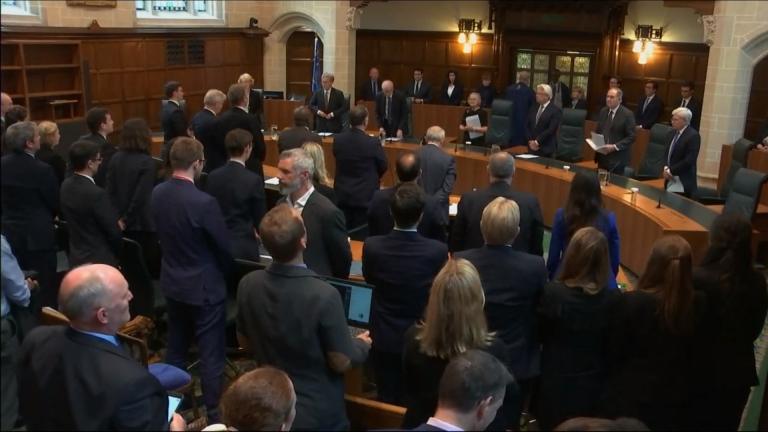
- Published13 January 2020
- Published8 October 2019
